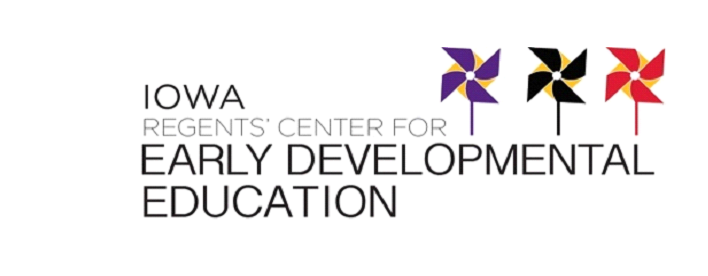The Iowa Regents' Center for Early Developmental Education was established by the State of Iowa’s legislators in 1988 (Senate file 2295: 262.71). The University of Northern Iowa was selected to house the statewide center to transform and promote best practices in early education (birth-8 years) that address local, state and national needs through advocacy, research, and professional and curriculum development, dissemination and outreach. The center seeks to develop and disseminate research-based programs and curriculum materials that respect the unique developmental needs of young children and their families and to develop a model program for educating preservice and inservice teachers in developmentally appropriate education.
A primary focus of the Iowa Regents’ Center is to contribute to a more literate citizenry in science, technology, engineering and mathematics (STEM) by laying a developmentally appropriate foundation for math and science in the early years, promoting the development of positive attitudes toward math and science, and combating the math and science phobia that prevails among students and early childhood and elementary teachers. Recognizing that children construct knowledge, intelligence, personality and morality through active engagement with physical and social environments, the Iowa Regents’ Center supports child-centered educational efforts that emphasize children's interest, experimentation and cooperation.
Mission Statement:
Through its activities, the Regents' Center aims to accomplish the following:
- Develop research-based programs and curriculum materials that respect the unique developmental needs of young children and their families.
- Promote applied and interdisciplinary research in early education.
- Disseminate information about developmentally appropriate early education to educators, parents, and the public at state, national, and international levels through workshops, conferences, and publications.
- Assist in developing early education programs for at-risk children and their families.
- Inform policy makers about the developmental and educational needs of young children and their families.
- Promote interinstitutional collaboration among the three State Regents' universities, other educational agencies, and government agencies.

